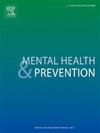A qualitative exploration of question, persuade, refer (QPR) gatekeeper training by the alabama suicide prevention and resources coalition
IF 2.4
Q2 Medicine
引用次数: 0
Abstract
Objective
Suicide remains one of the leading causes of death in the United States. The goal of this research was to explore the experiences of individuals who participated in the Question, Persuade, Refer (QPR) Training and subsequently intervened during a suicidal crisis post-QPR training.
Methods
The study team conducted key informant interviews with eight participants who completed QPR Gatekeeper Training between September 2018 and March 2019. Study participants worked in occupations with some exposure to suicide and expressed interest in suicide prevention based on previous personal or professional experiences. Team members used template analysis for thematic analysis.
Results
Study results focused specifically on program improvement; themes were divided between strengths of QPR training and opportunities for improvement. Results from this current study supported findings from previous studies including enhanced self-efficacy, the value of role-play, and the need for engaging presenters and relevant resources. Study findings add an important voice to the discussion: trainees who intervened in a suicidal crisis post-QPR training.
Conclusion
Despite its shorter duration, QPR Gatekeeper Training has been shown to be a highly effective program to prepare people to successfully intervene during a suicidal crisis. This study adds to the growing body of literature regarding QPR Gatekeeper Training efficacy and highlights the need for further study regarding program enhancements.
阿拉巴马州自杀预防和资源联盟对 "提问、说服、转介(QPR)"守门人培训的定性探索
目的自杀仍然是美国人的主要死因之一。本研究的目的是探讨参加过 "提问、劝说、转介(QPR)培训 "的个人在QPR培训后干预自杀危机的经历。方法研究小组对2018年9月至2019年3月期间完成QPR守门人培训的8名参与者进行了关键信息提供者访谈。研究参与者所从事的职业与自杀有一定的接触,并根据以往的个人或职业经历表达了对自杀预防的兴趣。团队成员使用模板分析法进行主题分析。结果研究结果特别关注项目改进;主题分为 QPR 培训的优势和改进机会。本次研究的结果支持了以往研究的结论,包括增强自我效能感、角色扮演的价值以及需要有吸引力的主讲人和相关资源。研究结果为讨论增添了一个重要的声音:在 QPR 培训后干预过自杀危机的受训者。结论尽管 QPR 守护者培训的持续时间较短,但它已被证明是一个非常有效的项目,可以帮助人们为在自杀危机中成功干预做好准备。这项研究为有关 QPR 守门员培训有效性的越来越多的文献增添了新的内容,并强调了进一步研究项目改进的必要性。
本文章由计算机程序翻译,如有差异,请以英文原文为准。
求助全文
约1分钟内获得全文
求助全文
来源期刊

Mental Health and Prevention
Medicine-Psychiatry and Mental Health
CiteScore
2.10
自引率
0.00%
发文量
22
审稿时长
24 days
 求助内容:
求助内容: 应助结果提醒方式:
应助结果提醒方式:


